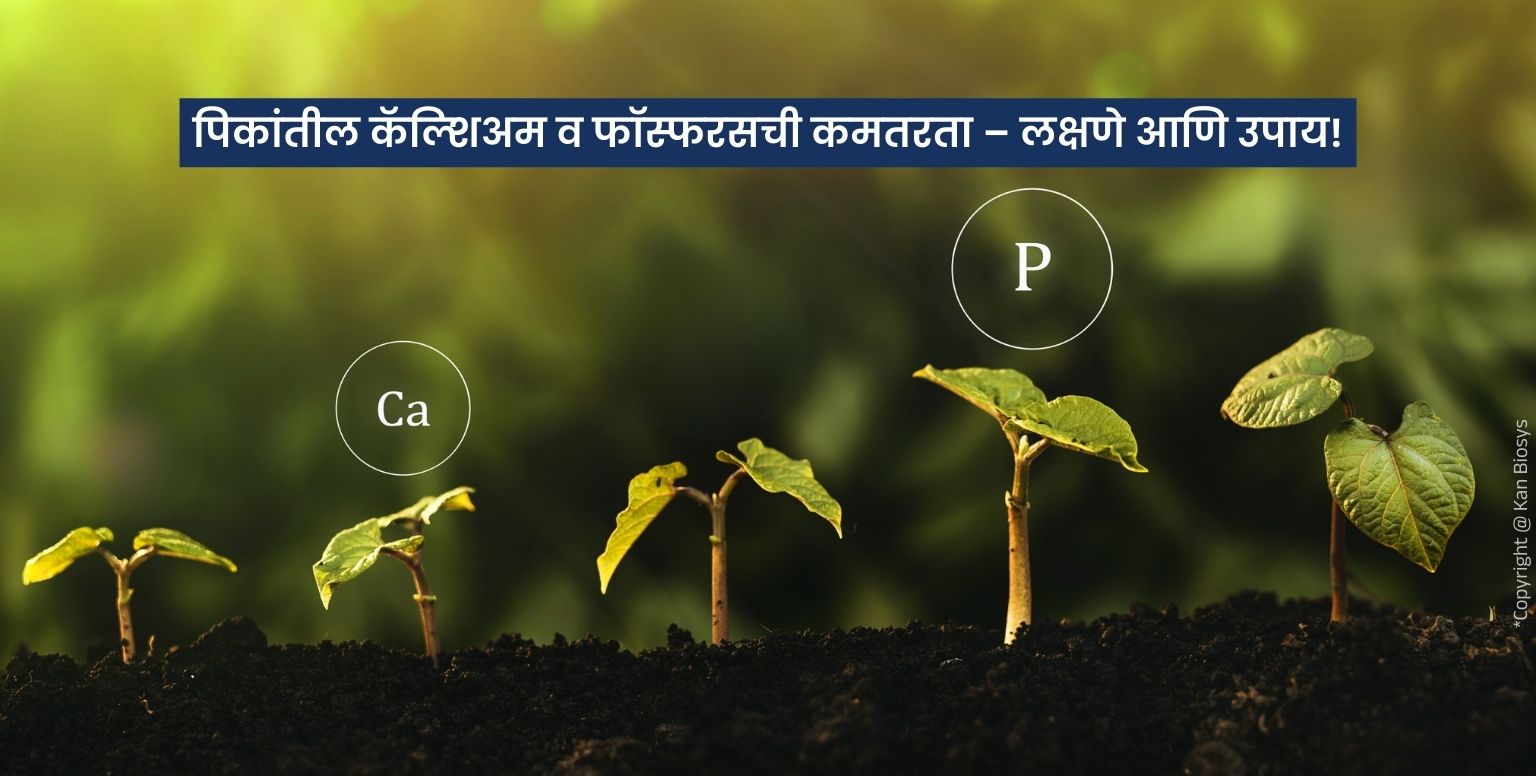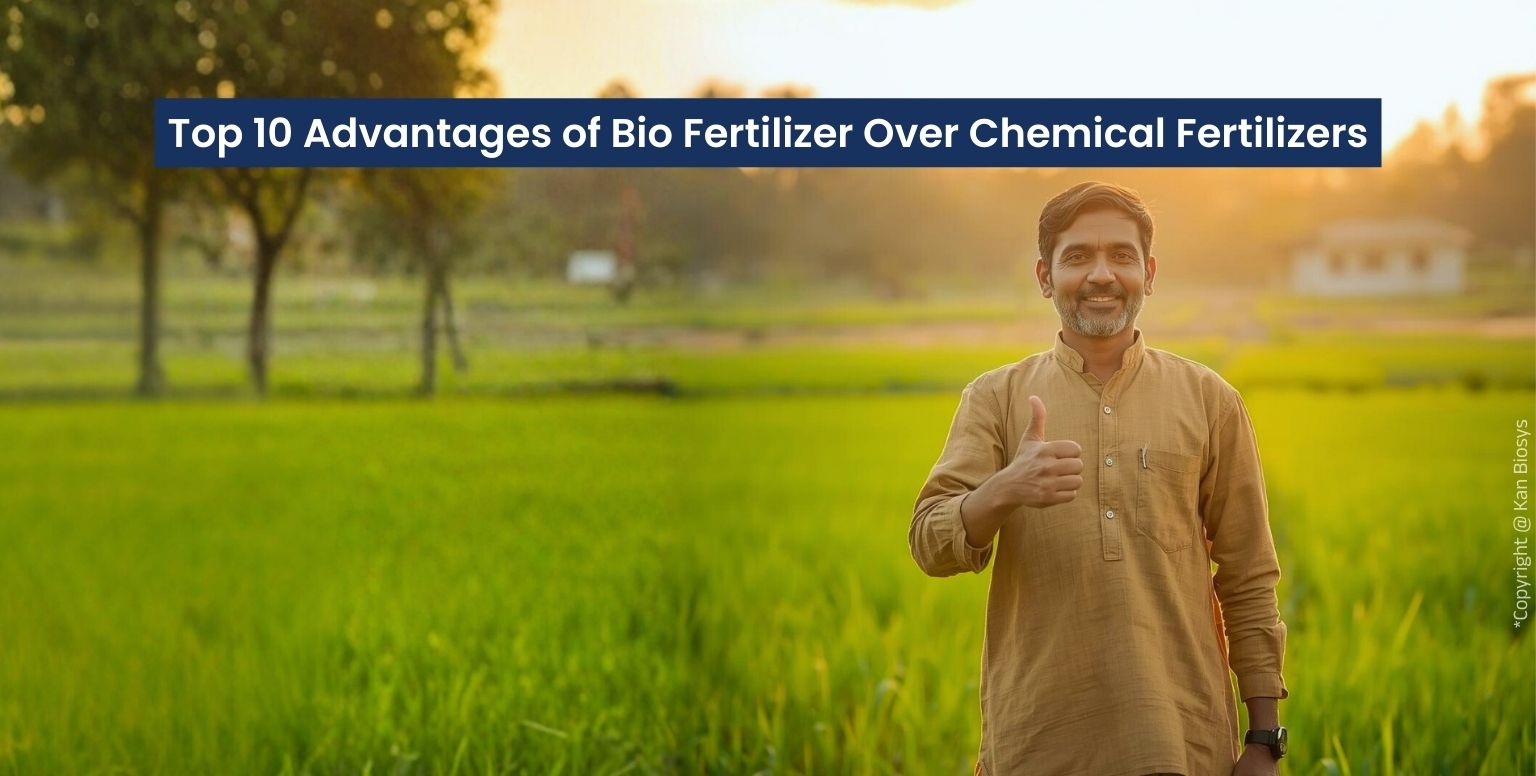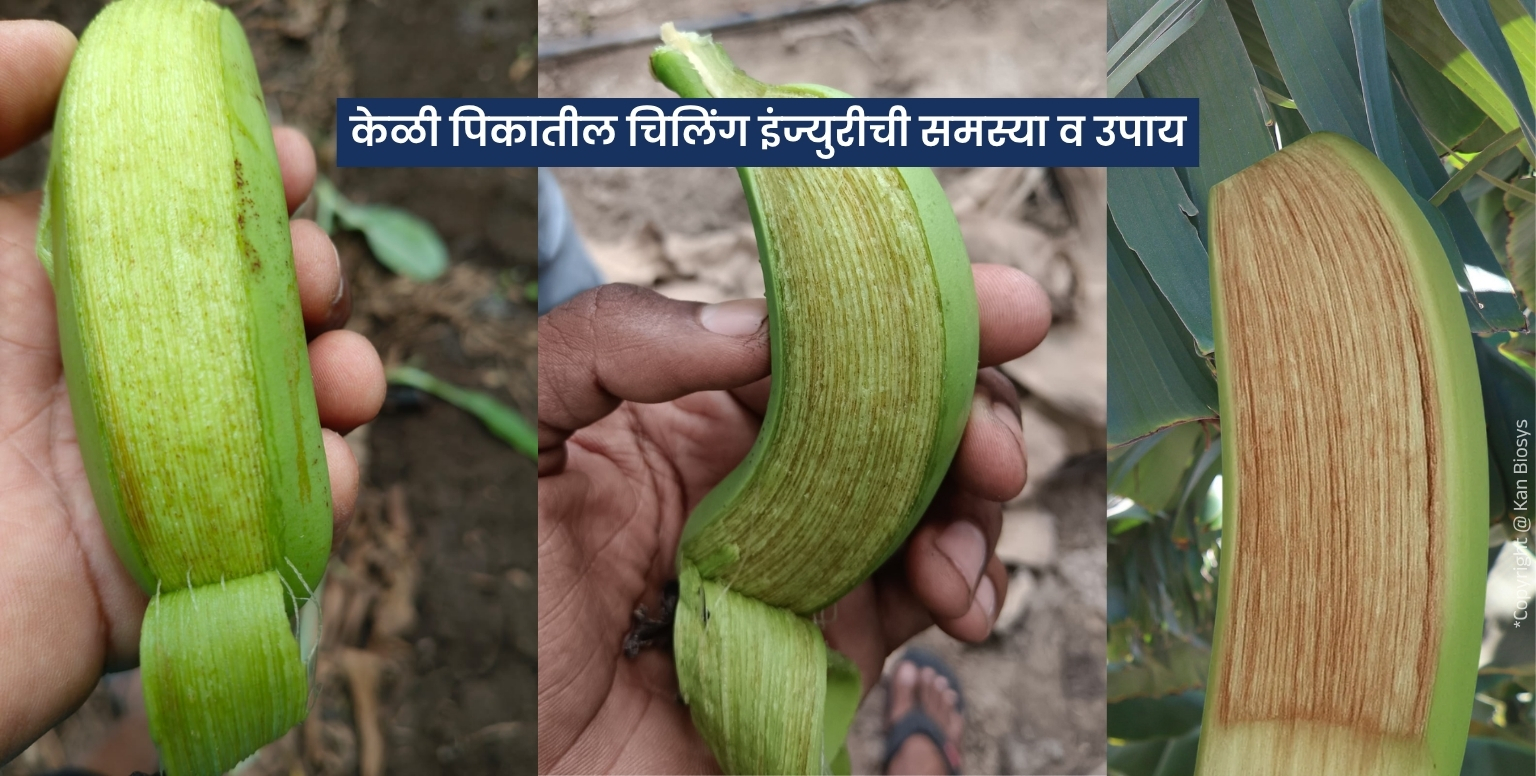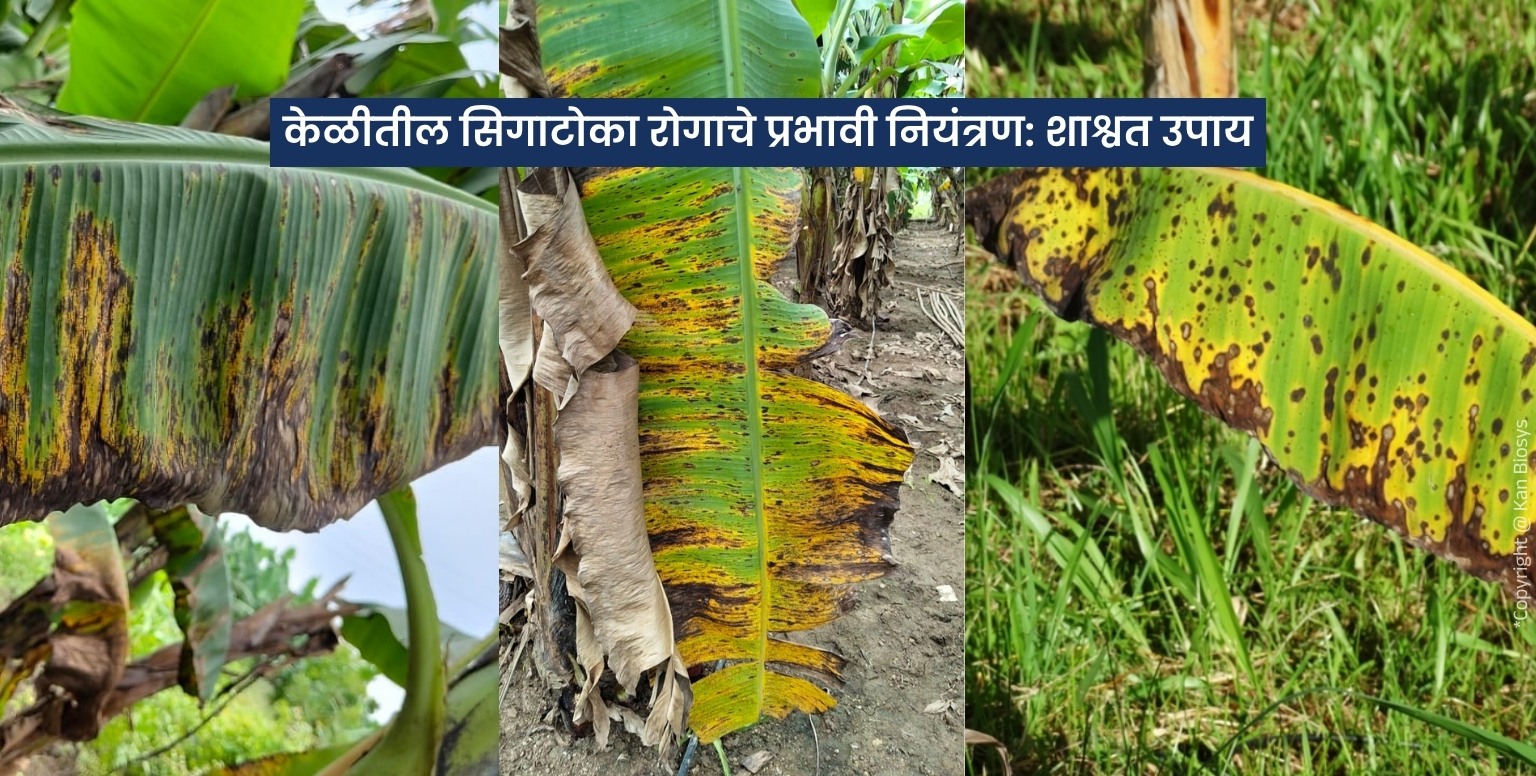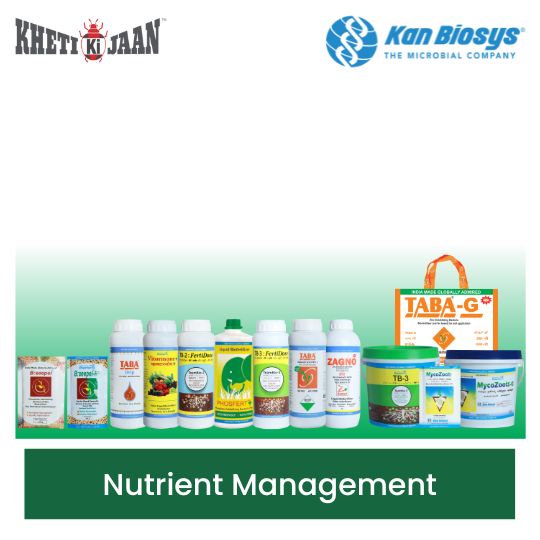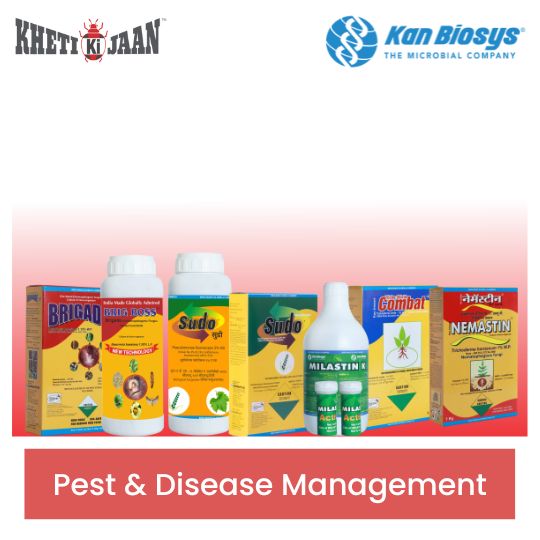Why the Future of Farming is Biological: Precision, Profitability & Planet Health
Why the Future of Farming is Biological: Precision, Profitability & Planet Health
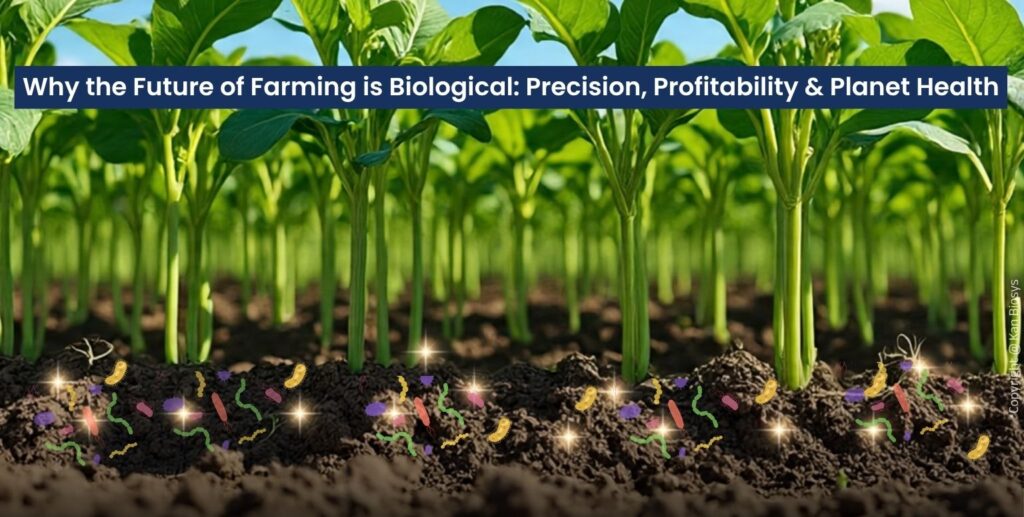
Modern agriculture is facing a pivotal challenge. Farmers are expected to produce more food with fewer resources, all while minimizing environmental harm. Yet, conventional chemical-intensive systems are showing cracks in their foundation.
According to the United Nations (UN), the global population is projected to reach 9.7 billion by 2050, which will require a significant increase in food production. At the same time, farming is becoming less profitable, soil health is deteriorating, and climate extremes are worsening.
A major contributor to this crisis is the over-reliance on chemical inputs:
- According to the World Bank (2023), global fertilizer prices have surged over 200% since 2020, heavily impacting farm economics.
- A report by the Business Standard (2022) highlights that soil organic carbon in India has dropped from 1% to just 0.3% in the last 70 years due to excessive use of synthetic inputs and poor organic matter management.
- The Food and Agriculture Organization (FAO) and World Health Organization (WHO) jointly reported that 30% of global food samples tested positive for chemical residues, raising concerns about food safety and consumer health.
Meanwhile, consumer awareness is on the rise. People are demanding sustainable, residue-free, and nutrient-dense food. Export markets are imposing stricter regulations, and climate change is forcing a rethink of traditional agricultural models.
Biologicals + Precision Farming
This is where biological agriculture, powered by precision technology, becomes the game-changer. With its SMART approach, Kan Biosys is at the forefront of this much-needed transformation.
Why Biologicals Are No Longer Optional
- Challenges with Chemical-Intensive Agriculture
The problems of over-reliance on chemical inputs are well documented:
- Stagnant yields: Farmers often use more fertilizers or pesticides each season but see no proportional increase in yield – a sign that soil and plant health are deteriorating.
- According to Business Standard, the drop in soil organic carbon from 1% to 0.3% indicates severe soil degradation.
- Pathogen and pest resistance: FAO warns that excessive pesticide use has led to super pests—pathogens and insects that no longer respond to chemical control.
- Rising costs: The World Bank reports fertilizer prices have doubled or even tripled in many regions, making farming economically unsustainable.
- Environmental damage: Runoff from synthetic fertilizers has led to algal blooms and aquatic dead zones, as reported by UNEP.
- Residues in food and water: According to the WHO, long-term exposure to pesticide residues is linked to various health disorders, including hormonal disruption and cancer.
- The Need for a Shift
- Farmers are now forced to use more chemicals to achieve the same output, leading to a chemical treadmill.
- Natural soil suppressiveness, its ability to fight off pests and diseases, is declining due to microbial imbalance.
- A study referenced by Scientific American shows that modern crops have lower nutrient content than those grown decades ago, primarily due to soil mineral depletion.
- Biologicals, powered by soil microbes and regenerative inputs, offer a path away from these challenges toward a future of farming that is productive, safe, and sustainable.
Precision Farming with Biological Inputs
- Integrated Nutrient Management (INM)
Integrated Nutrient Management combines the power of biofertilizers, organic inputs, and precision application methods to enhance soil fertility and crop yield.
- According to a large-scale meta-analysis by MDPI (2023), application of biofertilizers in 1,818 field comparisons in China led to yield increases across 21 of 23 crop types, with up to 65% improvement in millet and 35–50% for vegetables and legumes.
- Soil testing allows site-specific nutrient management (SSNM), ensuring that the right nutrients are applied in the right quantity, at the right time.
- Techniques like drip irrigation and foliar sprays are more efficient and reduce input wastage.
- Microbial biofertilizers release nutrients slowly, improving Fertilizer Use Efficiency (FUE) and ensuring nutrients are available to plants over a longer period.
- According to the Indian Council of Agricultural Research (ICAR), biologically enriched soils can retain up to 30% more water, helping in drought-prone areas.
- Integrated Pest Management (IPM)
Biological pest control offers a smarter, safer alternative to chemical pesticides.
- The National Academy of Agricultural Sciences (NAAS) confirms that integrating biopesticides and beneficial insects can reduce chemical pesticide use by up to 50%, without compromising yield.
- Biologicals encourage the growth of beneficial microbes and insects, creating a self-regulating ecosystem.
- Preventive use of biopesticides, such as Trichoderma spp. and Bacillus thuringiensis (Bt), builds disease resistance in crops and maintains microbial diversity in soil.
- According to FAO, IPM using biologicals is a cornerstone of residue-free food production and is critical for meeting export standards in Europe and North America.
Soil Health is Central to Everything
- Reviving Soil with Carbon & Microbes
Healthy soil is more than just dirt, it’s a living ecosystem. And microbes are its engineers.
- According to FAO, soils with higher organic matter have better water retention, higher nutrient availability, and increased root penetration.
- Biologicals such as mycorrhizae and nitrogen-fixing bacteria improve physical, chemical, and biological properties of the soil.
- Business Standard reports that rebuilding carbon content is critical, as carbon-rich soils are more productive and better at fighting climate stress.
- Microbial inputs improve soil porosity, enabling better root growth and aeration.
- Circular & Sustainable Farming
Biological agriculture is a perfect fit for the circular economy, where crop waste becomes compost, and microbial inputs return nutrients to the soil. It works with nature, not against it, preserving biodiversity, reducing pollution, and regenerating ecosystems.
According to a study by UNEP, regenerative and organic farming systems are more resilient to climate change, with higher adaptability to extreme weather conditions. Farmers practicing circular methods with biologicals report long-term soil health improvement and stable yields, even during erratic weather.
Food Safety & Security Through Biological Agriculture
- FAO and WHO have repeatedly warned about the risks of pesticide residues in food. Biological farming eliminates or drastically reduces these residues, resulting in cleaner, safer produce.
- According to Scientific American, food grown in mineral-rich, biologically active soils has higher nutritional content—including more antioxidants, vitamins, and minerals.
- Biological systems promote yield stability, even during climate stress, thus supporting food security.
- Reduced reliance on imported fertilizers and pesticides also strengthens national agricultural resilience.
- This is not just about consumer health; it’s about the long-term sustainability of food systems.
The Biological Revolution is SMART
Farming is no longer just about maximizing yield, it’s about doing so sustainably, profitably, and ethically. This is where the SMART philosophy by Kan Biosys shines:
Sustainable: Protects soil, water, biodiversity
Microbial: Uses nature’s own tools for plant health and growth
Agile: Adapts to soil types, climates, and crop needs
Regenerative: Rebuilds what has been lost over decades of chemical us
Technologies: Uses modern science and precision tools for efficient delivery
Biologicals aren’t a “green alternative” anymore; they are the core of modern, future-ready farming. And Kan Biosys is here to support this transformation with cutting-edge bio-solutions, digital tools, and field-proven expertise.
Explore our SMART product portfolio for biofertilizers, biopesticides, biostimulants, and organic soil conditioners at www.kanbiosys.com
- Join the SMART Agriculture Revolution – whether you’re a farmer, agripreneur, policymaker, or conscious consumer
- Follow us on social media for real-time updates, farmer stories, product launches, and participation in global exhibitions
Let’s build farms that heal the earth, feed the world, and secure the future.

